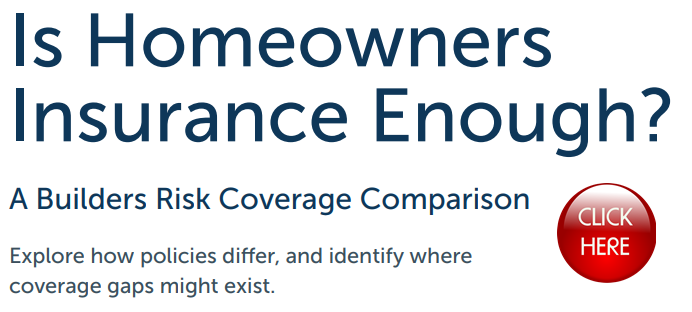
Townhouses: HO-3 or HO-6?
An often asked question is, “Which is more appropriate when writing a townhouse within a homeowners’ association that purportedly provides the real property coverage for the entire building?” This is a really good question because in these situations, the agent must choose between the HO-3 and the HO06. Read the article ... Additional Information Means Better Coverage.
One major reason to seek full prospect or client information is to, when necessary, secure proper premium for additional parties. This is typically achieved by adding endorsements. Endorsements allow coverage to be modified to fit situations that deviate from what is covered under a base policy form. Naturally, separate endorsements and, when applicable, additional premium allows for more precise coverage and pricing. Click here for an example of an additional insured endorsement’s wording under one commercial general liability’s endorsements section in PF&M. Homeowners Claim Denied: 5 Reasons WhyAm I Legally Liable?
Your insured asks, “If I do ‘X’, am I legally liable?” Or, “If ‘this’ happens, am I legally liable?” How do you response to such questions from your customers? Do you simply refer them to an attorney or do you provide some guidance with the caveat that you're not an attorney and not providing legal advice?
Kids at College: Does ISO’s Age Limitation Really Apply?
Based on the dictionary meaning of “resident," is there really an age limitation on kids away at college? Paragraph 5.a.(1) states that an insured is a relative who is a resident of your household. Paragraph 5.b.(1) states that a student who WAS a resident before MOVING OUT to attend school is an "insured." It does not appear an age limitation really applies if residency existed and the adult child never changed residency. It’s not the epitaph on your tombstone but the record of your deeds that may perpetuate your name after death.
Alfred Nobel had an opportunity afforded to very few. When his brother died, the newspaper confused the two and published Alfred’s obituary instead of his brother’s. As he read his own obituary, Alfred realized that the world would remember him for his invention of dynamite — an instrument of destruction. It was because of that experience that he decided to fund the Nobel Prizes. Today, most of the world knows his name in connection with humankind’s greatest achievements. Good deeds live on in the minds of others. When you do a kindness for someone else, you set in motion a force for good that will remain long after you’re gone. Your Construction Project with Builder's Risk Insurance: A Must-Have for Home Builders
As a home builder, you invest significant time, effort, and resources into your construction projects. However, unforeseen events beyond your control, such as fire, theft, or natural disasters, can put your hard work and financial stability at risk. To safeguard your project and mitigate potential losses, it is essential to understand the importance of Builder's Risk Insurance. This comprehensive article will delve into the intricacies of Builder's Risk Insurance, discuss who needs it, and spotlight its benefits for home builders. What is Builder's Risk Insurance? Builder's Risk Insurance, also known as Course of Construction Insurance, is a specialized insurance policy designed to protect the interests of home builders during the construction phase. It provides coverage for damage or loss to the insured property, including the building and materials, against a wide range of perils, excluding certain specified exclusions. Who needs Builder's Risk Insurance? While Builder's Risk Insurance is not legally mandated, it is highly recommended and often required by lenders, contractors, and project owners. Home builders undertaking construction projects of various sizes, such as residential developments, remodeling projects, or custom-built homes, can greatly benefit from this coverage. Additionally, it is crucial for builders involved in commercial construction projects, including retail spaces, office buildings, and multi-unit residential complexes. The Importance of Builder's Risk Insurance for Home Builders: Protection against property damage: Builder's Risk Insurance covers property damage resulting from perils like fire, windstorms, vandalism, theft, and more. This coverage ensures that your investment is protected, as repairing or replacing damaged property can be a significant financial burden without insurance. Coverage for construction materials: Builder's Risk Insurance extends coverage to construction materials stored on-site or in transit. This protects against theft, damage from inclement weather, accidents during transportation, or vandalism. This coverage is particularly beneficial in high-risk areas or when expensive materials are used. Profit preservation: In the event of a covered loss, Builder's Risk Insurance helps home builders preserve their expected profits. It covers additional expenses, such as temporary structures, debris removal, and professional fees required to complete the project on time or repair the damaged property. This enables builders to fulfill their contractual obligations without incurring significant financial setbacks. Enhanced reputation and client confidence: By having Builder's Risk Insurance, home builders demonstrate their commitment to protecting their clients' investments and showcasing a professional approach to risk management. This instills confidence in clients, lenders, and stakeholders, leading to enhanced reputation and increased business opportunities. Conclusion: Builder's Risk Insurance is an indispensable tool for home builders undertaking construction projects of any scale. Its all-encompassing coverage protects against various perils, safeguards your investment, and ensures the smooth completion of your projects. By securing Builder's Risk Insurance, home builders can focus on their core competencies, minimize potential losses, and build a solid foundation for long-term success. Remember, while this article provides valuable insights, it is essential to consult with one of our insurance professionals to determine the specific policy details that suit your needs. |
Unbelievable Hail Storm DamageHomeowner's / Renter's Insurance Basics
http://www.iii.org/es/insurance-topics/all-coverage-en-espanol Hail Damage Dilemma
Some insurers are apparently introducing homeowners policy provisions requiring the reporting of hail damage claims within 6 months of their occurrence, even though the damage may not be discovered for a year or more after the hail storm. One insurer limits lawsuits by policyholders on the same basis? Is this legal? Is it reasonable? Vacant Land
Vacant land presents two problems. First, most people find it hard to believe that they could be sued because they own a piece of vacant land. Second, the characteristics that make a piece of land “vacant” are not universally agreed upon, and thus are unpredictable. 4 tips to reduce water damage in a flood zoneIf you start at the top, you can move in only one direction — downward.
Perhaps the worst thing that might have happened to you would be to have been born with the proverbial silver spoon in your mouth. For had you been born into privilege, you would have been deprived of one of the world’s greatest gifts: the opportunity to reach the highest levels of success of which you are capable, solely on the basis of your own merit. If you were born with less than most, don’t resent others who seem to have more advantages. In truth, the real advantage is yours, for you will develop the self-confidence that comes only from meeting life’s challenges on your own terms. As you progress, you gain the strength and knowledge necessary to assure your enduring success, things that cannot be given to you, but must be earned. |
|
Attention: Georgia Agents! 24 hours CE for $24 or join GIA for $99 per year and it's free for all agency staff!
Have you enjoyed at least 24 hours of Edu-Tainment? If yes, you are welcome to take the Final Exam Otherwise, continue to Lesson #5: Stand Alone Policies |
Residential Insurance |
Residential Insurance |










